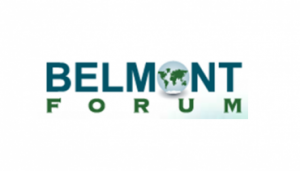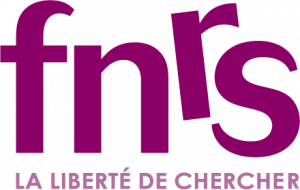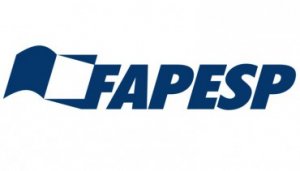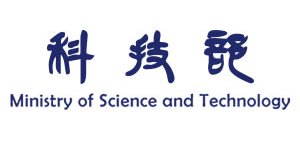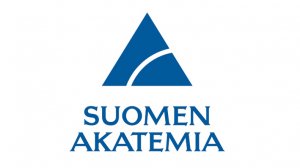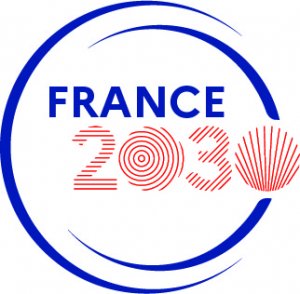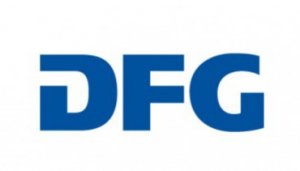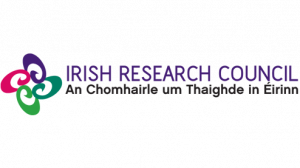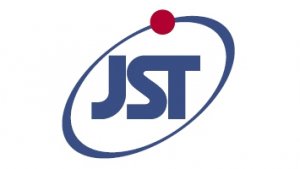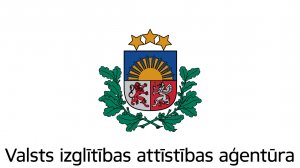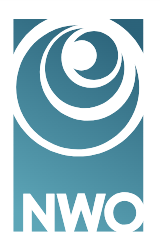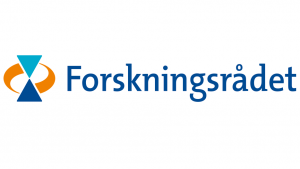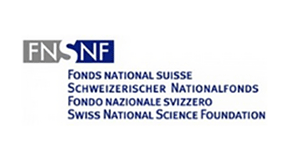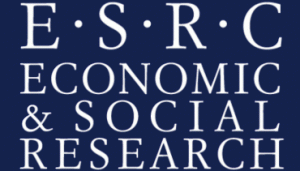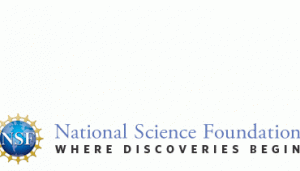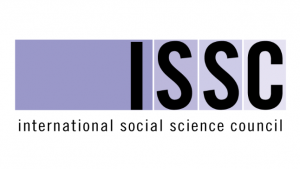Transformations to Sustainability
Climate change, environmental degradation and resource pressures have created unprecedented situations for societies worldwide. In particular Low- and Middle- Income Countries (LMIC) are likely to be disproportionally affected by this. The slow progress on many pressing challenges of global environmental change and global development has led to increasing emphasis, both in research and policy, on the need to go beyond the study and encouragement of incremental change. Conventional knowledge and capacity building to tackle the challenges associated with sustainability have had some positive impacts but are ultimately not fully adequate. Consequently, there is growing attention to the need for more fundamental transformations in the way societies interact with each other and with the natural environment as the basis of sustainability. Societal transformations refer to profound and enduring systemic changes that typically involve social, cultural, technological, political, economic and environmental processes. A comprehensive and concerted research initiative is needed that can boost research on transformations to sustainability, and catalyse new kinds of solutions to environmental and social challenges.
It is for these reasons that the Belmont Forum, NORFACE and the ISSC together as the Transformations to Sustainability funders launch the Programme ”Transformations to Sustainability” (Acronym: T2S). This programme will contribute to re-structuring the broad field of sustainability research by placing social science, as well as the humanities, at the heart of interdisciplinary research in a step change in scale and scope for research programming on this topic. Co-production of knowledge and research problem formulation is considered to be critical to the process of societal transformation. Therefore, proposal applicants are strongly encouraged to include stakeholder or community-based partners in their projects.
It is important that projects in this research programme be led by a Main Applicant from social sciences/humanities (SSH) and primarily predicated not on the development and demonstration of technological innovation, but rather on enhancing our understanding of societal aspects of transformation in relation to sustainability. At the same time, the concrete challenges around which the needs of and opportunities for societal transformations to sustainability are researched can also provide innovative approaches that will reinvigorate social science analysis. To study the challenges targeted in this call, both inter- and transdisciplinary approaches that enable researchers to address the interconnections and interdependencies between natural and human systems, as well as between science and society, are needed. Applicants are therefore strongly encouraged to include in their research teams relevant expertise from other fields of science, including the natural sciences, and to engage societal stakeholders, including community-based partners, in formulating research problems and co-developing and co-implementing knowledge on transformations. In addition, applications are strongly encouraged to build effective research partnerships with regions of the world where knowledge and expertise relevant to sustainability challenges have thus far been under exploited.
This programme has two major objectives:
- To develop understanding of and promote research on transformations to sustainability which are of significant social, economic and policy concern throughout the world and of great relevance to both academics and stakeholders.
- To build capacity, overcome fragmentation and have a lasting impact on both society and the research landscape by cultivating durable research collaboration across multiple borders, disciplinary boundaries, and with practitioners and societal partners.
This includes facilitating the development of new research collaborations with parts of the world which are not of ten involved in large-scale international research efforts, notably low- and middle-income countries. The programme is structured around three themes, described in detail in the Programme Text accompanying this Call for Proposals. Every research project should focus on at least one of these themes.
Thematic areas
- Governance and institutional dimensions of transformations to sustainability
- Economy and finance of transformations to sustainability
- Well-being, quality of life, identity, and social and cultural values in relation to transformations to sustainability
Proposals on the above described specific research themes may also include one or both of the following cross-cutting issues, also described in detail in the Programme Text:
Cross-cutting issues
- Conceptual aspects of processes of transformation
- Methodological innovation
The themes and the cross-cutting issues for the programme have been prepared by an international, multi-disciplinary Theme Expert Group.
Applicants should always consider whether diversity perspectives (such as gender and ethnic background) are relevant to the research questions the project will examine. If this is the case, these perspectives and the way they will be treated in the project must be described in the application.
The funding available for this T2S programme over a period of three years has been set at a minimum of 13 M€ across the international funding partners.
Eligibility
Topics
Proposals must address research topics falling within the scientific scope of the call, as defined in the Programme Text. Proposals must address one or more of the three themes as defined. However, it is expected that applicants will develop and add to these areas. In addition, applicants are encouraged to consider linkages across the themes and invited to reflect upon one or both of the following cross-cutting issues: (1) conceptual aspects of transformation processes and (2) methodological innovation.
Consortia
This call for proposals brings together the need for working on societal transformations to sustainability challenges in an interdisciplinary and transdisciplinary way. To study the challenges targeted in this call, inter- and transdisciplinary approaches are needed to address where appropriate the interconnections and interdependencies between the natural and human systems. The generated synergies and linkages will open new avenues of inquiry, produce new robust interdisciplinary knowledge, and generate new models and opportunities. Through this call, the NORFACE Network and the Belmont Forum will contribute to re-structuring the broad field of sustainability research by placing social sciences, as well as the humanities, at the heart of interdisciplinary research in a step change in scale and scope for research programming on this topic. Consortia may consist of partners active across several positions within the research and development system (i.e. innovation, applied research, fundamental research) and across disciplines (e.g. natural sciences, social sciences and humanities, and engineering).
Each consortium should be led by a Main Applicant from social sciences/humanities (SSH) and bring into being integrated teams of scientists from relevant other academic disciplines ( e.g. natural sciences, technical and engineering sciences) as appropriate, and engage with societal stakeholders to produce new knowledge and perspectives that can contribute to finding equitable and durable solutions to the challenges of sustainability in specific contexts.
Each proposal must be written by a project team. A project team must involve at least three national research teams, based in three different countries, and eligible for the funding from three different T2S funders (see list below). It is strongly encouraged that consortia contain at least two national research teams eligible for funding from two different EU member states or associated countries and at least one applicant from another country participating in this call in order to be able to take advantage of the funds provided by the European Commission. The eligibility of national teams is subject to national eligibility rules, or to ISSC eligibility rules, as appropriate. In case of doubt, the relevant funding agency can advise on eligibility.
If one of the national research teams in a consortium is not eligible and/or the trans-national three -country minimum requirement is not met, the whole consortium will be considered ineligible and the proposal will not be evaluated.
The call involves funders from the following countries:
EU Member States and Associated Countries:
Belgium, Finland, France, Germany, Ireland, Latvia, Luxembourg, Netherlands, Norway, Slovenia, Sweden, Switzerland, United Kingdom.
Non-European:
Brazil, Chinese Taipei, Japan, USA.
The ISSC will fund research teams in low or lower-middle-income countries only. Please note that researchers from low and middle income countries are also eligible as co-investigators on projects funded by the ESRC.
The added value resulting from transnational cooperation must be addressed in the proposal. There is no limit to the total number of partners who may be involved in a project.
Main Applicants, Co-applicants and team members must be eligible for funding from these funders, irrespective of their individual nationality. Depending on the national/ISSC eligibility rules, eligible applicants may come from organisations such as:
- Research organisations (universities, university colleges, research institutes or other authorities with research undertakings)
- NGOs, citizens’ representatives
- Cities, municipalities, regions
- Companies (from industry/large companies to SMEs)
- Consumers (e.g. business enterprises, test households)
The inclusion of stakeholder or community-based partners is considered to be critical to the process of societal transformation, and applicants are expected to demonstrate how they engage with appropriate stakeholders during the lifespan of the project. Proposals should reflect on how they intend to do so. Contributions by these partners may be either cash or in-kind.
Each project team should strive to include researchers at an early stage of their careers, including post-doctoral researchers and PhD students unless indicated otherwise in the country -specific guidance. T2S strives to promote gender equality, and encourages female researchers to apply.
Participation is strictly limited to a maximum of two proposals per applicant (whether as Main Applicant, Co-applicant or team member) and no individual can act as Main Applicant in more than one proposal. In the Full Proposal stage, applicants who are involved in two proposals will be asked to show how they will distribute their time between the two projects, should they be funded. Teams must convincingly justify the participation of all applicants involved in their proposal.
Teams that have submitted an Outline Proposal who are invited to the Full Proposal stage are not allowed to make changes to the core of the proposal or the project team. However, in case of force majeure, changes in the consortium are allowed. Force majeure cases include (a) a Main or Co -applicant changed her/his affiliation and after consultation with the Coordination Office or (b) following an explicit recommendation by the evaluation panel and in line with (national) eligibility requirements. You are advised to consult the contact point at your national funding agency if you have doubts relating to this matter before submitting an Outline Proposal. Adding cooperation partners who are not eligible for funding in the Full Proposal is allowed. At the Full Proposal phase the relevant funding organisations will again check and confirm the eligibility of all applicants involved in a proposal.
Roles within a consortium
Main Applicant’s role
Every project has one Main Applicant. The Main Applicant will be a social sciences/humanities (SSH) researcher responsible for carrying out and managing the project. ( S)he will be the contact point for T2S on behalf of all the applicants and responsible for the administrative and financial management of the overall project, should it be funded. In addition, the Main Applicant is responsible for leading the project activities at her/his own institution. The Main Applicant must be based at an institution eligible for the funding of a participating T2S agency. Main Applicant status is not limited to researchers at any specific career stage, though national/ISSC eligibility rules apply.
Co-applicants’ role
The Co-applicants are responsible for the administrative and financial management for the national part of a project, should this be funded. Each Co-applicant is responsible for leading the project activities at her/his own institution. Each Co-applicant should be based at an institution eligible for the funding of a participating T2S agency. Co-applicant status is not limited to researchers at any specific career stage, though relevant national/ISSC eligibility rules apply.
There may be more than one Co-applicant from one country but only one Co-Applicant per University/Research Institution in a given proposal. Other project team members at the University/Research Institution should be listed under the heading ‘Other research team members’ in the Outline Proposal template. If there is more than one applicant from a country, one of them needs to be identified as the national contact point in the proposal template. If this is not clear, the T2S Coordination Office will consider the first person named as National Contact Point. Communication from the Co-ordination Office or the T2S partners may be sent to this contact point, who will be responsible for distributing the information to the other partners in the country.
Other project team members
All other eligible project team members participating in the proposal can be listed as other project team members. PhD students or Postdocs whose names are not yet known can be included as “NN”. Some funding agencies are able to cover the personnel costs of researchers from outside their country. If these personnel costs are eligible these researchers should also be listed as other project team members.
Cooperation partners
Additional personnel from countries not involved in the call or ineligible for support from T2S funding agencies can be part of project teams once the three agency minimum is met. Unless specified otherwise in the country-specific eligibility requirements, however, they will be required to bring their own support. Those researchers and non-academic partners who are not eligible for funding from the T2S programme funders but who would like to contribute to the project are invited to participate as Cooperation partners. No funding can be requested for them from the T2S programme. The applicants invited to submit a Full Proposal will be asked to demonstrate the sources from which the participation of the Cooperation partners will be funded. Contributions by external partners can be either cash or in-kind. T2S accepts personnel input and the material contributions as in-kind co-funding on the condition that these are capitalised and that they form an integral part of the project. This should be made clear in the description and planning of the research.
Please note that the applicants who submitted the Full Proposal should be the same for the Outline Proposal stage. However, a team is allowed to add Cooperation partners to the consortium between the Outline and Full Proposal stage.
Funding
Available funding
Small and large projects are equally welcome. The total funding requested from the T2S partners must not exceed € 1,500,000 across all participating partners. A justification of the requested budget will be required. Projects requesting more than € 1,500,000 will be ineligible, even at the Outline stage. Please see Table 1 for the available budgets per country/funder.
Eligible costs
All costs must be eligible according to the national eligibility rules available under “National Eligibility Requirements”. Applicants may request funding for personnel costs, consumables, travel costs, equipment, subcontracting and other costs in accordance with the relevant national research funding rules. Please read the “National eligibility requirements” to verify the eligibility of specific budget items according to the rules of your funding organisation. In case of doubt, applicants should consult their respective national contact person who can advise on funding rules.
Projects will be expected to engage in knowledge exchange activities regarding the outcomes of the project, and engage stakeholders as early in their project as possible. Costs for these activities can be included in the requested budget in addition to the costs for research according to national funding rules.
The estimated budget must be given in Euros only and be tabulated according to the proposal template provided. For applicants from countries outside the Euro-zone, please convert your budget to Euros and indicate the exchange rate used. In the Outline Proposal form only estimated costs need to be stated, but these should still be as realistic as possible. For this, it is strongly advised to consider the national guidelines for eligible costs that must be used at the Full Proposal stage. Estimated costs can be updated in the Full Proposal with a maximum change of 10%.
Project duration
Projects can last up to 36 months. Projects can start June 2018 at the earliest, and must have started by 1 December 2018 at the latest. All national research teams within a given project will be expected to start their projects at the same time. Proposals for projects lasting more than 36 months will be declared ineligible.
